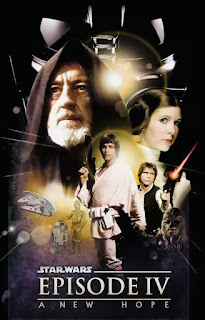In the early 1960s, Dad quit smoking.
I remember it clearly. He finished a pack and declared he was finished with cigarettes. Dad was medically trained and believed the reports that were starting to circulate: Smoking was a danger to health. Even though many in the medical field disagreed with the results of those early studies, Dad thought they had validity. So, he quit.
It didn’t go all that well. He was grumpy and always out of sorts. He held out almost a month before he resumed smoking, and close to a year went by before he decided to try quitting again. You could call that first try a failure. But Dad didn’t. He said he learned important lessons—the main one being that a person needs a new habit to replace an old one. Previously, Dad quit "cold turkey." But this time, he had a plan.
Each time Dad found himself wanting a cigarette, he worked on the house. He scraped off old paint. He swiped on new paint. He sealed widows against the cold. He crawled under the house to check the plumbing and electrical connections, and he re-wrapped all of it, appropriately.
When our house was as good as it was going to get, Dad moved on to the houses of our elderly relatives. He replaced roof tiles, re-hung screen doors, poured concrete, scraped, painted, sealed. Next up: the car.
Each new urge to smoke was met with a new project. It was fast and furious for a time. But then one day, Dad's home care, elder care, and car care activities began to slow down. Oh, he still did some repairs now and again, but he no longer needed to replace smoking with a new habit. He had beaten it.
Dad never smoked again.
It's this kind of "replacement" therapy God requires of us in the way we treat each other. When it comes to bad behaviors, he never asks us to just quit "cold turkey." Instead, as this week's Isaiah selection says, "Cease to do evil, learn to do good." See how that works? It's not "stop doing evil and start doing good." It's "stop the bad and learn the good." Who knows us better than God? He knows we need new habits to replace our old, bad ones. So, He directs us to start the change process by learning how to do good.
The passage continues by telling us how to start that learning process: Seek justice, rescue the oppressed, defend the orphan, plead for the widow. We find its reflection in the teachings of Jesus. (“Go and learn what this means: I desire mercy, not sacrifice.")
In fact, if you want to start this process, the Bible is chock full of replacement activities, brand new habits we can practice until they are second nature to us. And we can keep on practicing them until we no longer feel that tug of the old life-threatening habit.
No need to try to quit cold turkey. God is with us and wants us to succeed.
"Cease to do evil, learn to do good."
_________________________
PHOTO: Collection of Steve Orr
_________________________
Can you be with us Friday morning for DaySpring’s Lectionary Breakfast? We're learning to do good as we peruse God's word, discuss it among ourselves, and continue replacing bad habits with good ones. Join us at 8:00 at Our Breakfast Place and on Zoom** for food, fellowship, and fun...all squeezed into an hour like no other.
Blessings,
Steve
**Contact me for the Zoom link
NOTE: Zoom allows you to mute the camera and the microphone if you don’t wish to be seen or heard.
SCRIPTURES FOR SUNDAY AND THE COMING WEEK
Find them here:
https://lectionary.library.vanderbilt.edu/texts.php?id=287
Print them here:
https://lectionary.library.vanderbilt.edu/pdf//Cx_Proper26.pdf
Habakkuk 1:1-4; 2:1-4
Psalm 119:137-144
Isaiah 1:10-18
Psalm 32:1-7
2 Thessalonians 1:1-4, 11-12
Luke 19:1-10
Proper 26 (31) (October 30, 2022)
_________________________




